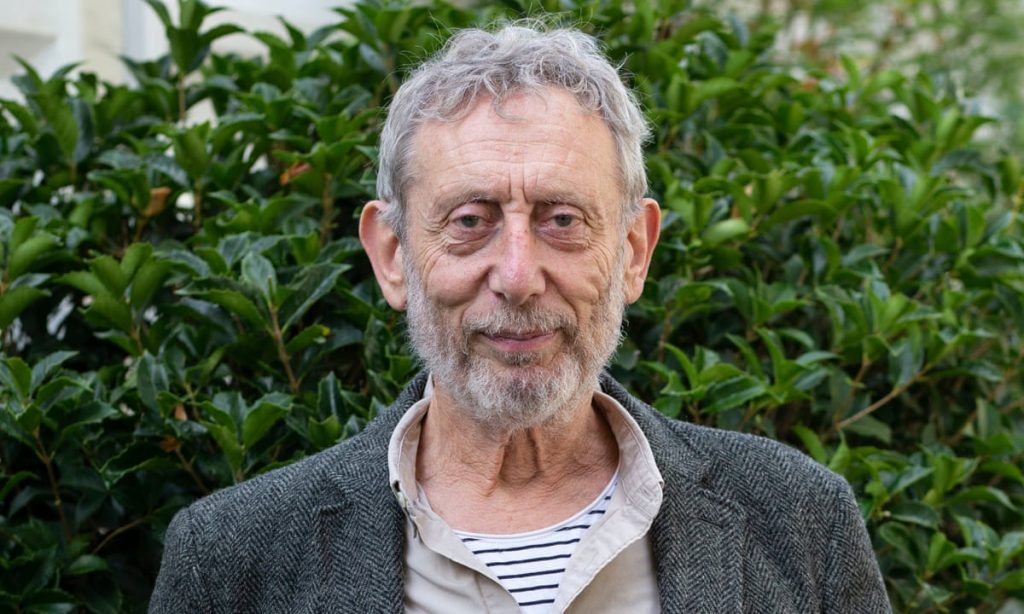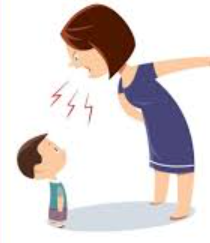
NCERT Solutions For Class 7 English Honeycomb Poem Chapter 4 Chivvy by poet MICHAEL ROSEN. Being chivvy is to nag, “to continuously urge someone to do something, often in an annoying way”, according to the dictionary. Michael Rosen chivvy point out every little mistake that the children make. Even though it is for disciplining the children and to teach them good manners.
Introduction of NCERT Solutions Michael Rosen chivvy For Class 7 English Honeycomb Poem Chapter 4
The poem NCERT Solutions For Class 7 English Honeycomb Poem Chapter 4 Chivvy by poet MICHAEL ROSEN. Being chivvy is to nag, “to continuously urge someone to do something, often in an annoying way”, according to the dictionary. In this poem, he tells us that adults continuously act chivvy all the time and point out every little mistake that the children make. Even though it is for disciplining the children and to teach them good manners. The children find it boring and feel like the adults act chivvy for every little thing and try to mock them.
Read more: NCERT Solutions For Class 7 English Honeycomb Chapter 1 Three Questions
Here we are going to give you a summary of the poem with its questions and answers.

First Stanza
Grown-ups say things like:
Speak up
Don’t talk with your mouth full
Don’t stare
Do not point
Don’t pick your nose
First Stanza
Explanation:
In this stanza, the poet is saying from a child’s point of view. He says that adults always say do not do that, do not do this. The adult tries to discipline a child but learning new manners for the children is not fun. And rather they think the adults try to be chivvy to them every time.
Second Stanza
Sit up
Say please
Less noise
Shut the door behind you
Don’t drag your feet
Haven’t you got a hankie?
Take your hands out of your pockets
Second Stanza
Explanation:
In this stanza,Michael Rosen chivvy, the poet is saying that the adults pick up small things to act chivvy about. Small things like not having a handkerchief, taking hands out of pocket, and others listed above, everything seems normal but the adults find every little fault and they pay too much attention to every detail. It is annoying to the children.

Third Stanza
Pull your socks up
Stand up straight
Say thank you
Don’t interrupt
No one thinks you’re funny
Take your elbows off the table
Third Stanza
Explanation:
In this stanza, the poet says that the adults always seem to find the things that children do unpleasant. If the children try to make a joke then they will say they are not funny if the children are concentrating on schoolwork and forget to take off elbows from the table, the adults, that is a teacher will still act chivvy and will tell them to take off the elbows, even if it was not necessary. The adults act chivvy about every little thing, that is what the poet is trying to tell us.

Fourth Stanza
Can’t you make your own
mind up about anything?
Fourth Stanza
Explanation:
In these last two lines, the poet means that often the adults contradict themselves. They can’t make a decision about anything. For example, in the first and second stanza interesting we see two lines:
- Speak up
- Less noise
So these two things contradict. The children think that sometimes they are not allowed to talk, the adult scolds them to talk even though both are in different scenarios, the children are unable to understand and differentiate. Thus they think the adults are just trying to act chivvy for no reason.
Conclusion for NCERT Solutions For Class 7 English Honeycomb Poem Chapter 4 Chivvy
The poem Michael Rosen Chivvy uses a poetic device called Alliteration. Alliteration is defined by the Oxford Dictionary as ‘The occurrence of the same letter or sound at the beginning of adjacent or closely connected words’. As we can see the poet uses a lot of ‘S’ words in the poem closely connected. Thus Alliteration is used.
Exercises from the Textbook of NCERT Solutions For Class 7 English Honeycomb Poem Chapter 4 Chivvy
Find NCERT Solutions For Class 7 English Honeycomb Poem Chapter 4 Chivvy below.
Question 1
Discuss these questions in small groups before you answer them.
(i) When is a grown-up likely to say this? Don’t talk with your mouth full.
(ii) When are you likely to be told this? Say thank you.
(iii) When do you think an adult would say this? No one thinks you are funny.
Solution:
(i) Don’t talk with your mouth full.
Ans. A grown-up is likely to say this when the children are at the dining table and are eating with their mouths full and trying to talk.
(ii) Say thank you.
Ans. A grown-up is likely to say this when the children receive presents but do not say thank you to the giver.
(iii) No one thinks you are funny.
Ans. A grown-up is likely to say this when the children are constantly trying to make fun of something when they are supposed to be serious.
Question 2
The last two lines of the poem are not prohibitions or instructions. What is the adult now asking the child to do? Do you think the poet is suggesting that this is unreasonable? Why?
Ans. In these last two lines, the poet means that often the adults contradict themselves. They can’t make a decision about anything. For example, in the first and second stanza interesting we see two lines:
- Speak up
- Less noise
So these two things contradict. The children think that sometimes they are not allowed to talk, the adult scolds them to talk even though both are in different scenarios, the children are unable to understand and differentiate. Thus they think the adults are just trying to act chivvy for no reason. Since our poet is saying from a child’s point of view, thus he thinks that the adults are being unreasonable.
Question 3
Why do you think grown-ups say the kind of things mentioned in the poem? Is it important that they teach children good manners, and how to behave in public?
Ans. Yes, grown-ups say the kind of things mentioned in the poem.
It is very important that they teach children good manners, and how to behave in public. The children will thank them later in life when they become an adult.
Question 4
If you had to make some rules for grown-ups to follow, what would you say? Make at least five such rules. Arrange the lines as in a poem.
Ans. The five rules arranged in a poem are as follows:
Do not contradict yourself,
Always motivate the children,
If you are wrong accept your mistakes,
Teach manners but try not to act chivvy:
Always try to be honest and always happy.
FAQs of NCERT Solutions For Class 7 English Honeycomb Poem Chapter 4 Chivvy
Find NCERT Solutions For Class 7 English Honeycomb Poem Chapter 4 Chivvy below
1. Give three synonyms of chivvy.
Ans. Three synonyms of chivvy are:
- Nag
- Badger
- Torment
2. Who is acting chivvy and to whom?
Ans. The adults are acting chivvy and to the children.
3. What do you mean by chivvy Class 7?
Ans.‘Chivvy’ refers to persistently encouraging someone to accomplish something. The poem contains a list of frequent directions issued by adults.
4. In which stage is the listener in poem chivvy?
Ans. The listener is in the studying in schools stage.
5. What I found interesting in chivvy?
Ans. The term “chivvy” refers to repeatedly pressing someone to behave. The poem offers a list of common directives given by grownups. They always give these rules to the youngsters to help them behave better. Children are continually expected to present themselves professionally.